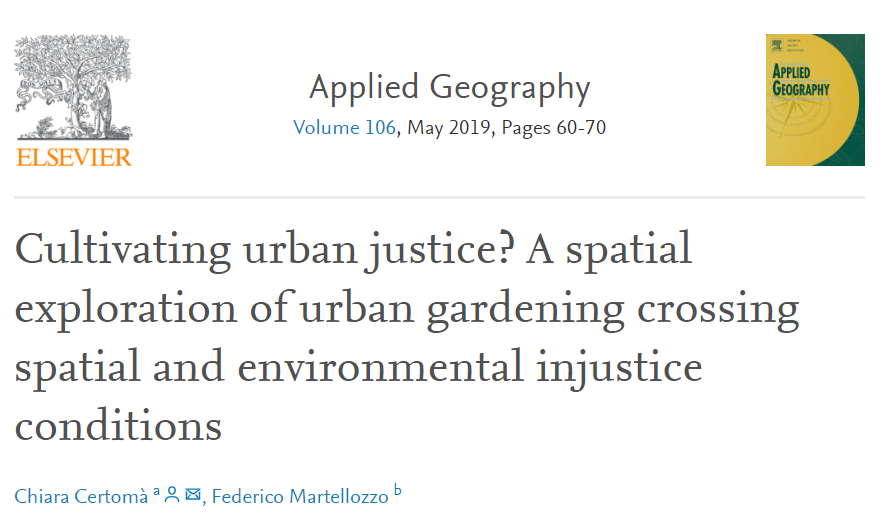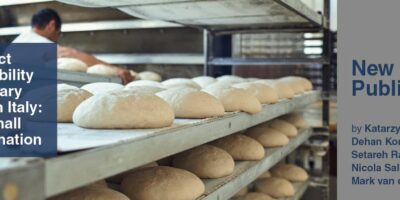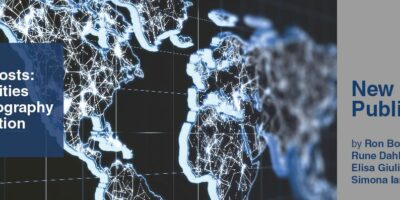Cultivating Urban Justice in a world of environmental injustice: A new article is out!

Chiara Certomà and her co-author just published an interesting piece on Urban Gardening. Congrats!
Abstract
This paper explores the potential of the global urban gardeningmovement to mitigate spatial and environmental injustice conditions in the urban space. After a background discussion of the spatial and environmental injustice theory and an assessment of methodologies that have been adopted in relevant studies, we will highlight existing links with urban gardening initiatives in a specific case study, i.e. the city of Rome, Italy. The case study is introduced to investigate the spatial coincidence of urban gardening initiatives in this specific city (assumed as the dependent variable) and spatial and environmental injustice (S&EI) indicators. Several S&EI-related phenomena whose relevance has been demonstrated are mapped, and their goodness of fit in serving as explanatory variables for the spatial distribution of urban gardening agency is investigated. The analysis builds upon a quantitative approach and features a linear spatial regression model. Surprisingly, findings suggest that social-economic variables generally have greater influence on spatial injustice than environmental variables. In fact, from a theoretical perspective, our results challenge the current interpretation of urban gardening as a mere means to address environmental, food or nature-related issues in cities. Instead, they support the increasingly popular interpretation of urban gardening as a political gesture. Our results provide policy-makers with useful observations about key variables related to spatial injustice in the city and contrasting initiatives, notably urban gardening projects. The paper concludes with a critical assessment of the results and the limiting and supporting factors of the featured theoretical and methodological framework.



